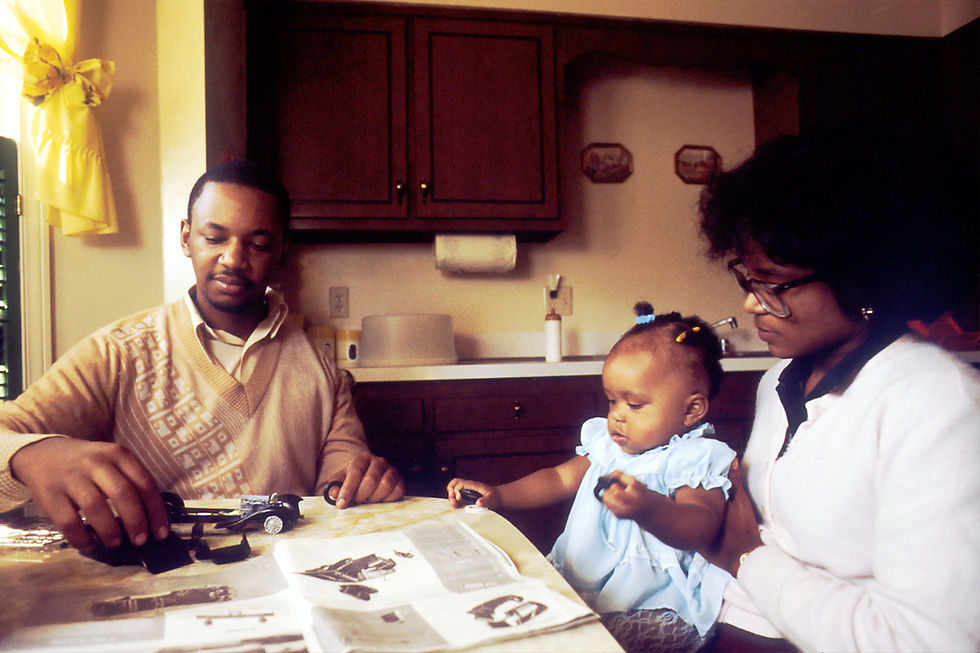“I Don’t Feel Like Myself Anymore”: The Overlooked Mental Health Impact of Concussions
- Tracy Larson
- Jun 2, 2025
- 4 min read

You don’t have to remember hitting your head for your brain to remember it for you.
You might be feeling off—irritable, forgetful, disconnected. Maybe you’re snapping at your partner more often, or you’ve lost your motivation to do things you used to love. You might chalk it up to stress or burnout. But here’s the part most people miss:
Sometimes your symptoms aren’t “just stress.” They’re your brain asking for help.
Concussions often leave a silent imprint. The impact doesn’t always look like what you see in movies. There’s not always a dramatic fainting spell or a bandage on your head. Instead, weeks or months later, you might find yourself sitting at your desk, unable to focus, wondering why your anxiety has skyrocketed—or why you just feel wrong inside your own body.
So what happens after your brain gets knocked around?
It’s not all in your head, but it does start there.
When your brain experiences a sudden jolt (from a car accident, a fall, or even a sports injury), it can affect more than just memory and coordination. It can change the way you feel, behave, and respond to the world.
Maybe you’ve noticed:
You're quicker to anger than you used to be.
Bright lights and noise make you want to crawl out of your skin.
You're either sleeping too much… or not at all.
Conversations feel overwhelming—like your brain is buffering.
You get hit with waves of sadness or panic for no clear reason.
These changes can make you feel like you’re losing control or that something deeper is going wrong. The truth? Your nervous system is still in recovery mode—and that includes your emotional regulation.
Mini insight: Up to 80% of people with concussions experience mood-related symptoms, especially anxiety and depression.
And yet, when people show up to their doctor or ER, they’re often told to “rest and take it easy.” But what happens after that? When life expects you to return to normal, but your brain just… hasn’t?

The Mental Side of Concussions No One Talks About
Here’s what I see all the time: clients come in months after a head injury saying things like…
“I’m crying all the time and I don’t know why.” “I feel like I’m faking it because everyone says I look fine.” “I don’t trust myself anymore. I forget things. I feel like I’ve changed.”
And they’re right. Something has changed. Concussions don’t just bruise your brain, they rattle your sense of self. When your brain is foggy, your emotions are unpredictable, and your relationships start feeling strained, it makes perfect sense to feel disconnected from who you were before.
This is especially true when the injury overlaps with trauma.
Think about it: a car accident or fall is often traumatic by itself. If you were already dealing with anxiety, PTSD, or chronic stress, a head injury can intensify those symptoms. Now you’re not just anxious: you’re anxious and exhausted, with a short fuse and brain fog that won’t lift.
So when should you seek therapy after a concussion?
Let’s be clear: therapy can’t “cure” a concussion. But it can absolutely help you navigate the emotional chaos that often follows.
You might want to consider therapy if:
You’re experiencing mood swings or anxiety that feel out of character.
You’ve been told you have post-concussion syndrome but still feel alone.
You’re struggling with sleep, overstimulation, or social withdrawal.
You feel like your family, friends, or coworkers don’t “get it.”
You just want to feel like yourself again.
At HML Wellness Solutions, we help people process these changes with compassion and clarity. We know it’s not just about the injury. It’s about your identity, your ability to function, and your confidence in your own mind.
We’ll work with you to untangle what’s happening, build strategies to reduce overwhelm, and help you reclaim your sense of self. That might include things like:
Cognitive Behavioral Therapy for stress and emotional reactivity
Mindfulness tools to reduce overstimulation
Pacing techniques for managing energy and brain fatigue
Support for PTSD therapy in Northern BC if trauma is part of the story
And practical coaching to rebuild confidence in work, relationships, and daily life

This isn’t about bouncing back. It’s about moving forward differently.
You don’t have to push yourself to “be normal” again. You’re allowed to move at the pace your body (and your brain) needs. You’re allowed to say, “This is harder than I thought it would be.”
And most importantly?
You’re allowed to ask for help.
Book your session.
We offer affordable therapy services in Prince George and throughout BC, including online counseling options if in-person care isn’t accessible for you right now.
We specialize in helping people navigate the confusing aftermath of accidents, injuries, and mental health disruptions. Whether you’re dealing with anxiety, PTSD, grief, or that foggy feeling you can’t shake, we’re here to help.
You’re not imagining it. Your brain just needs a little more time and the right kind of support.
Reach out today to connect with a mental health therapist at HML Wellness Solutions.
Your healing is valid. And it’s possible. Let’s talk.




Comments